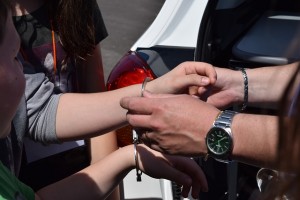Getting arrested and facing charges for drunk driving can be a very frightening and intimidating experience. You do not know what to expect. These feelings of anxiety may increase if you are arrested out-of-state and far from your home and family. If you are a New Jersey resident, in addition to having to deal with the charges in the state where you were convicted you will also face serious consequences in New Jersey.
Once your out-of-state DUI has been reported, you will probably have your license suspended in New Jersey and face expensive surcharges from the New Jersey Motor Vehicle Commission (MVC). In addition, if you are convicted of drunk driving in New Jersey any time during the ten years following your out-of-state conviction, you will face enhanced penalties in New Jersey as a repeat offender.
Suspension of Your Drivers License
Once you are convicted of DUI out-of-state, the record of your conviction will be reported to the Chief Administrator of the MVC through the Interstate Drivers License Compact (the Compact). The Compact is an interstate agreement between 45 states to exchange information about license suspensions and traffic violations, including DUI offenses. The Compact’s motto is “One Driver, One License, One Record.” The only five states that do not participate in the Compact are Massachusetts, Michigan, Wisconsin, Georgia and Tennessee; all other states, including the District of Columbia, participate.
When you are convicted in a state that participates in the Compact, your driving record will be affected just as if you had committed the offense in New Jersey. Out-of-state non-moving violations like parking tickets, tinted windows or a loud exhaust pipe will not be reported to the New Jersey MVC. But serious charges like a DWI/DUI will be reported.
For example, if you are convicted of a DWI/DUI in New York or Pennsylvania, your license will be suspended in New Jersey for:
- 180 days if it is your first DWI/DUI offense
- 2 years if it is your second DWI/DUI offense
- 10 years if it is your third (or greater) DWI/DUI offense
All prior convictions (whether out-of-state or in New Jersey) count as prior offenses for determining how long your license will be administratively suspended.
Motor Vehicle Surcharges
Surcharges are fines assessed by the New Jersey Surcharge Violation System. If you have too many points on your license for moving violations, or if you are convicted of a DWI, you are liable for a surcharge in addition to any court fines and penalties you have to pay in the state where you were convicted. Once your out-of-state conviction is reported to the MVC, you will have to pay $1000 per year for the next three years. If the conviction is your second within three years, or your third offense, you will have to pay $1500 per year for the next three years.
Sentencing Enhancements
Violation of any law that is “substantially similar” to New Jersey’s own DWI statute will constitute a prior conviction if you are later convicted of a DWI in New Jersey. This is true even if the state where you were convicted is not a signatory to the Compact.
New Jersey DWI – DUI Lawyer Edward M. Janzekovich Represents People With Prior Drunk Driving Convictions
If you have been convicted of drunk driving in another state, and are facing new charges in New Jersey, trusted DWI lawyer Edward M. Janzekovich is prepared to defend you. We have a successful track record of defending clients in Ocean County, Monmouth County, Mercer County, Middlesex County, Union County and Somerset County, including Union, Dover, Brick, Jackson, Wall, Woodbridge, East Brunswick, Evesham, Howell, Robbinsville, Bound Brook, Neptune, Hamilton, Linden City, Bridgewater and Tinton Falls. To take charge of your situation, call us at 732-257-1137 or contact us online today.



 In New Jersey, if you are convicted or
In New Jersey, if you are convicted or